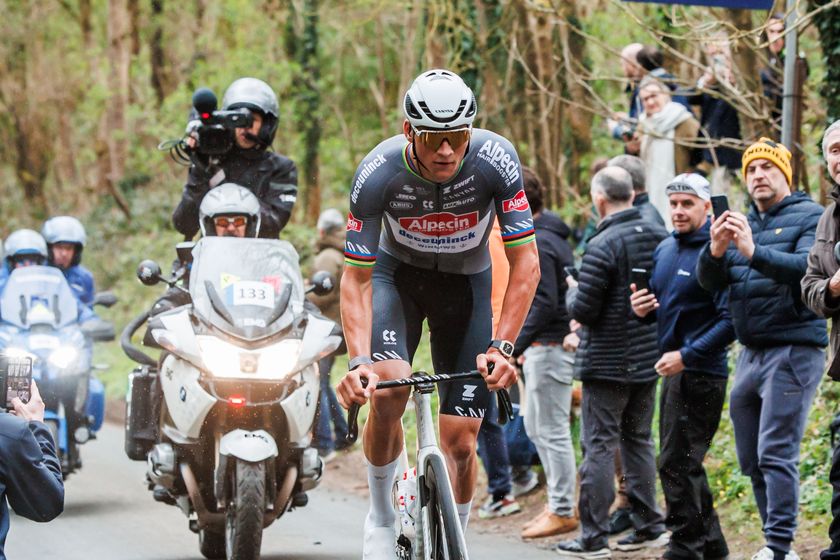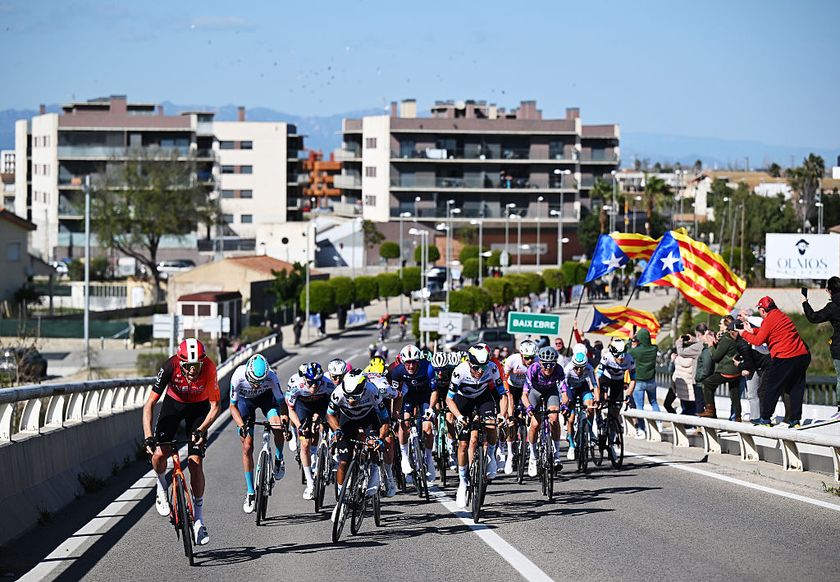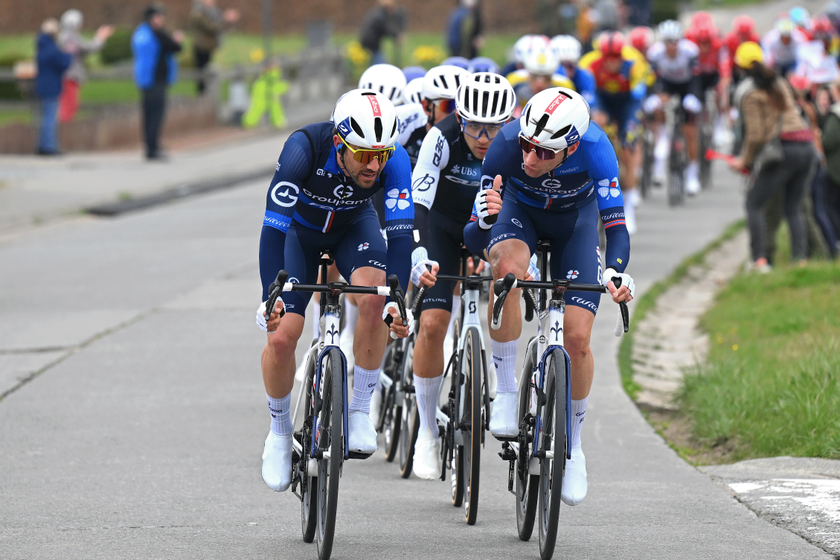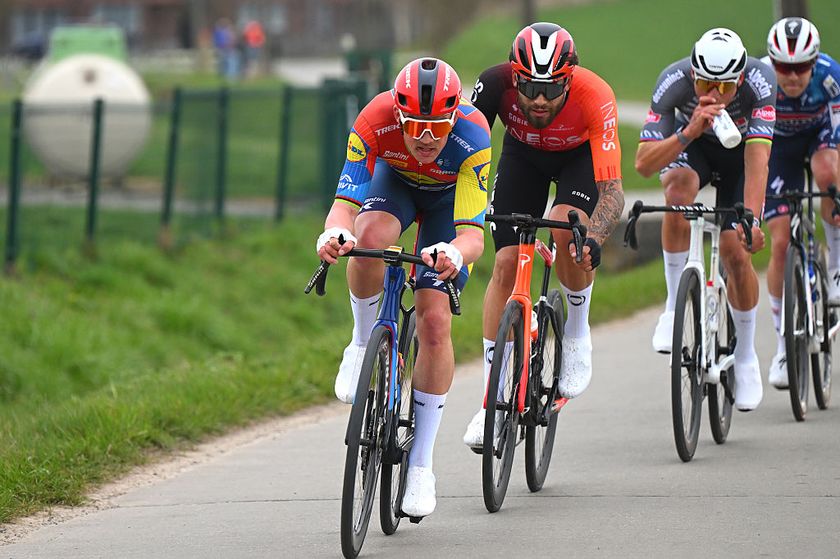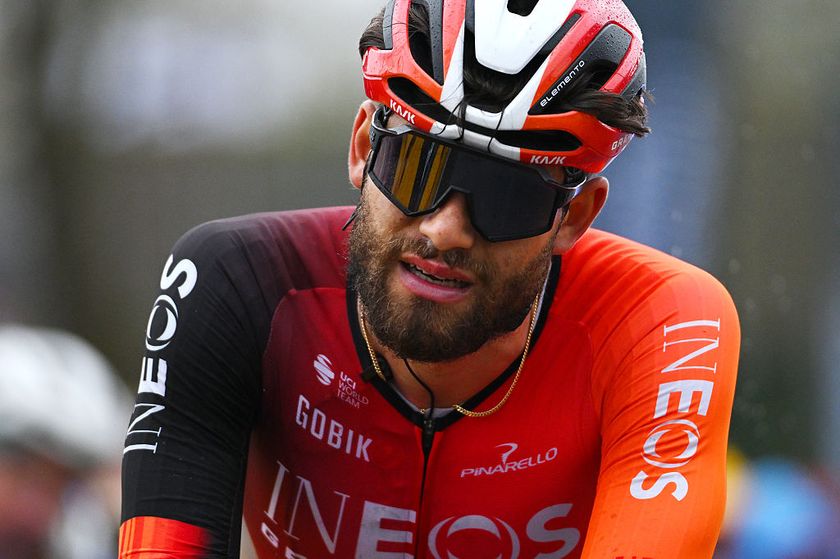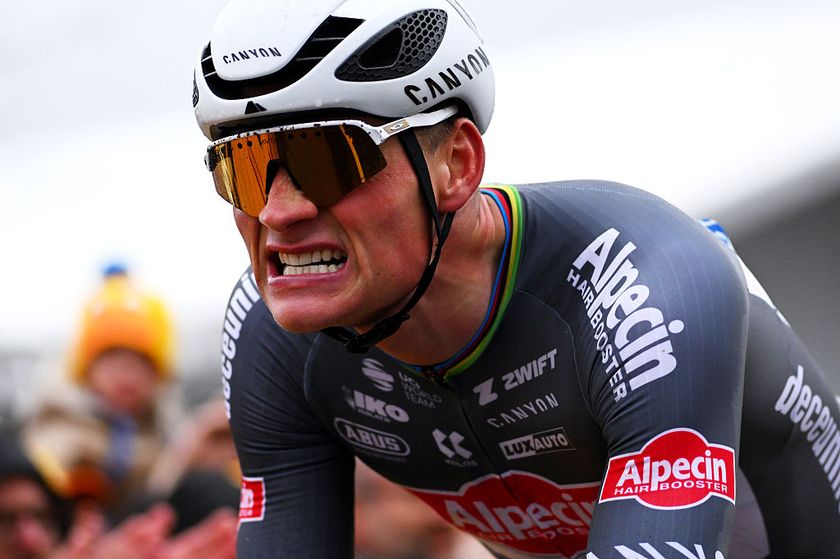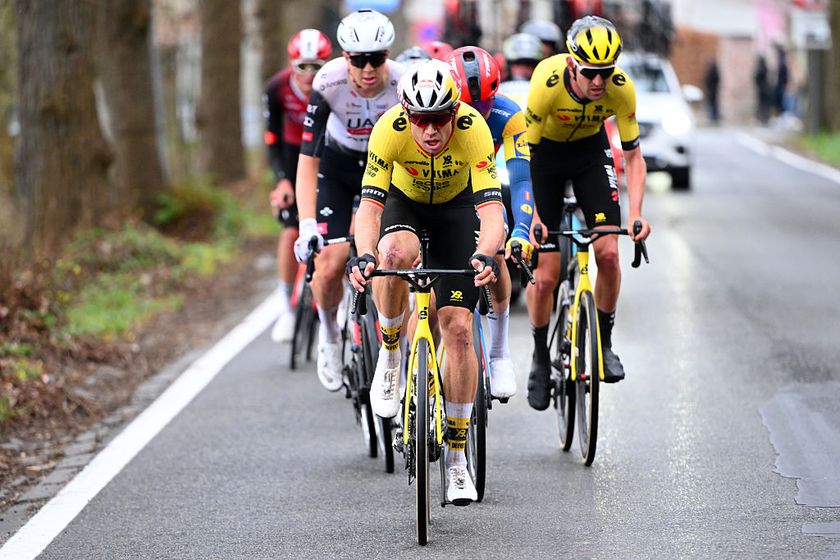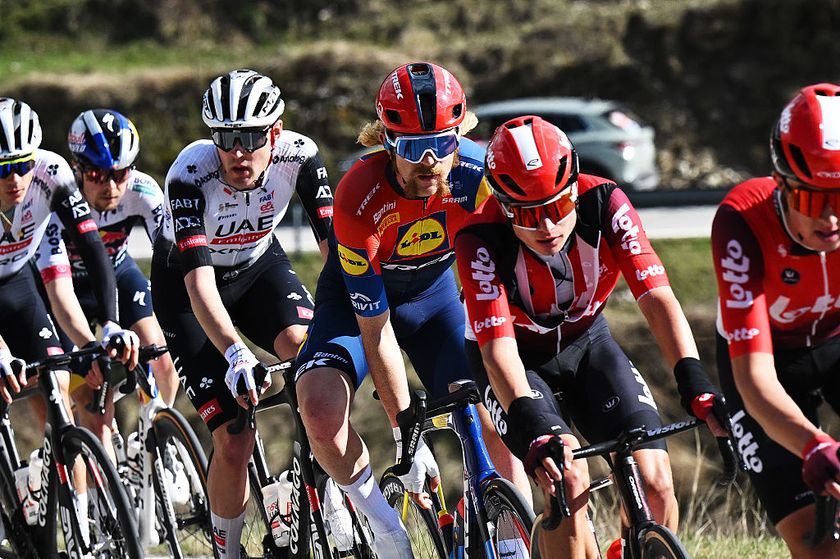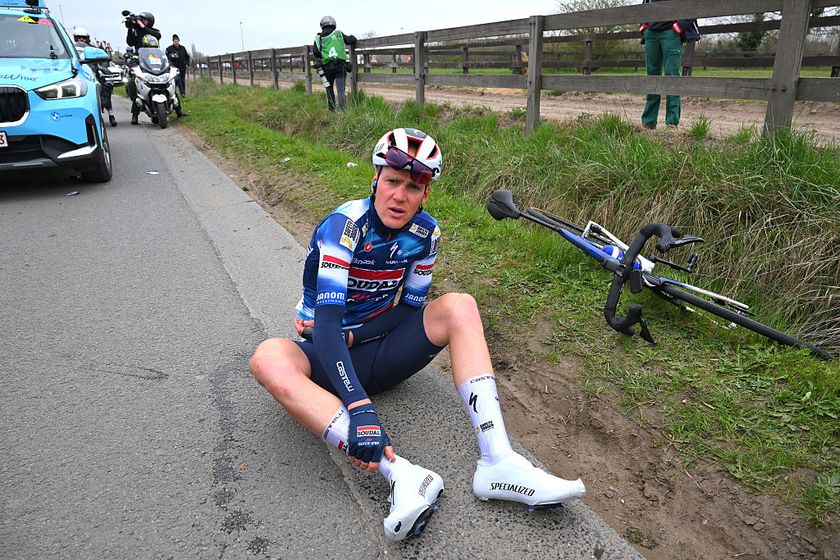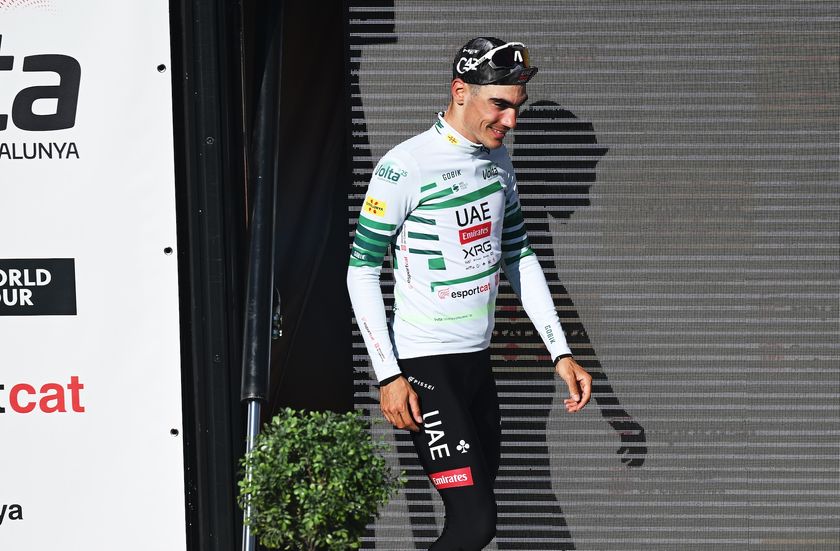Giro d’Italia: De Jongh defends Tinkoff-Saxo’s tactics on stage 3
Team manager argues best way of staying safe






Tinkoff-Saxo manager Steve De Jongh has defended his team’s tactics by claiming that they worked on the front throughout stage 3 of the Giro d'Italia as a way of "avoiding having to fight for wheels."
Alberto Contador's teammates formed an almost permanent line at the front of the peloton for much of the stage. Their strength in numbers was such they were able to bring back the last remnants of a 25-man break just before the three-kilometres-to-go sign.
Although some might take that as a show of strength to intimidate their rivals before the mountains, De Jongh said that the Russian team's aim was much more pragmatic.
"I just spoke with the boys and they felt more comfortable on the front than fighting for positions on the wheels," De Jongh told a small group of reporters outside the Tinkoff-Saxo team bus after the stage.
"We want to stay safe, we know this stage was going to be hard, so this morning in the meeting it was pretty clear that if we were to ride, they were going to ride."
But after hitting the front so hard, and for so long, De Jongh added that this did not automatically imply they would be maintaining such a gung-ho attitude all the way through to Milan. Nor, he insisted, was it so unusual for the Russian squad to be taking on this role of keeping the race under control when such duties usually are assumed by the leader's team - in this case Orica-GreenEdge.
"It was better to do that than to be fighting for position. There will be other stages where the sprinters teams will have their responsibilities, there will be breakaways. This is not something we do every day. We'll take it on the day-by-day."
Get The Leadout Newsletter
The latest race content, interviews, features, reviews and expert buying guides, direct to your inbox!
Although the Giro d'Italia is only three days old and it is too soon to draw major conclusions, and De Jongh said that he was surprised to see that one of Richie Porte's key support riders, Vasil Kiryenka, was dropped from the front group of stage three, losing ten minutes.
"It was a tough day throughout," he said, "that's why the bunch blew apart on the final climb" - with 74 riders in the front group.
"The next two stages are difficult too, and after the Abetone [stage five] the two days after we'll probably see some breaks going."
The question of whether Contador and Tinkoff-Saxo are riding so hard with the aim of wearing down their rivals prior to an early attack hovered in the air, but De Jongh would not be drawn beyond pointing out that he was currently ahead of the other favourites overall. "If he waits, he waits, and if he feels it is time to attack, he will attack."
Likewise, when asked why Tinkoff-Saxo did not leave it to Orica-GreenEdge to do the work, De Jongh argued that the Australian squad might not have the climbing firepower that the Russian squad clearly are not lacking.
"They were also pulling while they had a rider in front [in the break]. They were taking their responsibility but it may be very hard for them with their team they have to take full control of the race."
"They brought a team to win the team time trial, they have got some really big guys here, high 70 kilos, or low 80 kilos and it was a hard stage for them. But I said it would be to stay safe."
With Philippe Gilbert in the break, BMC's director Valerio Piva said he did not understand Tinkoff-Saxo's tactics. But De Jongh responded to such comments by arguing, "everybody does his own race, and sometimes I'm not happy, but I don't complain about them as well."
De Jongh said that Pozzovivo's crash had, like for all the race followers, given him great cause for concern.
"In the car there was a little bit of silence there, when we passed him and I saw his eyes were closed. It's never a nice thing to see. But my girlfriend sent a text to say she had heard he was conscious and breathing by himself. it was a relief."
Alasdair Fotheringham has been reporting on cycling since 1991. He has covered every Tour de France since 1992 bar one, as well as numerous other bike races of all shapes and sizes, ranging from the Olympic Games in 2008 to the now sadly defunct Subida a Urkiola hill climb in Spain. As well as working for Cyclingnews, he has also written for The Independent, The Guardian, ProCycling, The Express and Reuters.
